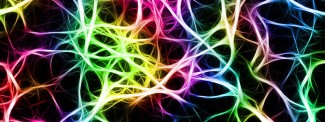During generalized seizures, in which epileptic activities affect the entire cerebral cortex, patients undergo an interruption of their conscious processes and are unable to deal efficiently with sensory stimuli. Using a genetic model of absence-epilepsy, a generalized child epilepsy leading to a disruption of cognitive tasks and conscious perception, Stéphane Charpier's team has just shown that these crises annihilate in every moment the cortex neurons' ability to receive and process information from the outside. It is the first "real-time" demonstration of a neural mechanism participating in the interruption of conscious perception mechanisms during generalized seizures. An additional study in young patients with epilepsy will soon be conducted in collaboration with the Rothschild Hospital.
Epilepsy is one of the most common neurological diseases affecting nearly 1 % of the population. An epileptic seizure results from excessive and hypersynchronous electrical activities in a set of cortex neurons, which may impair these neurons' ability to receive and transmit information.
Epileptic symptoms are variable. Absence seizures, occurring more especially in young children and adolescents, are characterised by episodes of a few seconds of consciousness alterations associated to a lack of response to environmental stimuli and stopping current behaviours. During this period, the patient suffers from a loss of contact with the outside world, he is figuratively " absent ".
In an article published in the Journal of Physiology (London), scientists from Stéphane Charpier's team (Network Dynamics and Cell Excitability) have studied, in an experimental model of absence-epilepsy, changes of some neuron properties initiating and being responsible for seizures. For this purpose, they have particularly combined different types of in vivo recordings of these neurons' electrical activity (combining an electroencephalogram with an intra-neuronal recording). They have observed an increase in neuron activity and sensitivity between seizures, while, during a crisis, their response to stimulation is highly variable, alternately amplified and attenuated, making information processing unstable and likely inefficient.
Researchers have thus highlighted that the crises annihilate in every moment these neurons' ability to integrate exogenous information in a reliable and reproducible way, namely to process efficiently sensory stimuli, compromising the stability of their activity, required for conscious experiences.
It is the first "real-time" demonstration of a neural mechanism participating in the interruption of conscious perception mechanisms during generalized seizures. An additional study in young patients with epilepsy will soon be conducted in collaboration with the Rothschild Hospital.
Sources
Integrative properties and transfer function of cortical neurons initiating absence seizures in a rat genetic model.
http://www.ncbi.nlm.nih.gov/pubmed/27311433
Williams Mark S., Altwegg-Boussac Tristan, Chavez Mario, Lecas Sarah, Mahon Séverine and Charpier Stéphane. The Journal of Physiology, June 17, 2016.







